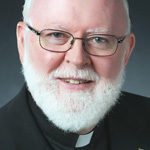Earlier this month an atheist gave what he called a “secular invocation” before a session of the Iowa Legislature. He viewed the experience as an affirmation of atheism and wrote about it in an editorial that appeared in the Quad-City Times. Coincidentally, the younger, atheist son of the late President Ronald Reagan has been appearing in a TV ad for the Freedom from Religion Foundation. The proud atheist assures listeners at the end of his spiel that he’s not worried about burning in hell.We need to explore why more people are being drawn to atheism. Pew Research Center’s 2014 Religious Landscape Study found that the percentage of Americans who identify as atheists has roughly doubled in the past several years. When asked about their religious identity, 3.1 percent of American adults said they were atheists, up from 1.6 percent in a similarly large survey in 2007, Pew reported. An additional 4 percent of Americans call themselves agnostics, up from 2.4 percent in 2007.
Atheists deny the existence of God, according to the Merriam-Webster Dictionary, while agnostics believe that the existence of any “ultimate realty,” such as God, is “unknown and probably unknowable.” Curiously, the Pew study found that “8 percent of those who call themselves atheists also say they believe in God or a universal spirit.”
The study also found that “about three times as many Americans say they do not believe in God or a universal spirit (9 percent) as say they are atheists (3 percent).” Perhaps they don’t want to be labeled. They don’t recognize that God is the source of wonder they experience in the world.
Author Larry Alex Taunton writes in “The Faith of Christopher Hitchens” that the late internationally known atheist’s “vain attempt to bring God’s Kingdom crashing down became a means for his surreptitious investigation of hidden spiritual questions.” Yet he clung to his atheism.
The Quad City Times guest columnist spoke about the growing number of “religious nones,” people no longer affiliated with a religious group, and the “religious dones,” people who grew up in religion but studied their way out of it. He identifies with the latter group and views religion as the chains “holding down scientific discovery.”
What chains? The Catechism of the Catholic Church states that “methodical research in all branches of knowledge, provided it is carried out in a truly scientific manner and does not override moral laws, can never conflict with the faith because the things of the world and the things of faith derive from the same God” (159).
Father Paul Appel recently wrote in the St. Alphonsus-Davenport parish bulletin about observations he’s made in working with converts over the past 14 years. His advice gets to the heart of this editorial, conversion:
“First, we must always provide a good example of faith to others. This means if we are going to call ourselves Christians, we must play the part. This means forgiving those who wrong us, being patient with those who frustrate us, and spend some time reading about the faith, studying the Scriptures, and attending to our religious obligations.
“Second, we must not be afraid to talk about our faith. I don’t expect that you have to have a degree in theology. Honestly that is not as important as knowing some good stories. First, ask yourself when there has been a time you saw God at work in your life. Even a simple example can give a potential convert something to think about. Do you have a favorite saint? Learn about their life and use their story as an example to inspire others. In other words, ask yourself why your faith is important to you and simply share that story with others.
“Finally, most converts will say that something happened in their life that touched them in a certain way and began to open their mind and heart to the possibility of conversion. We call this experience ‘grace.’ Pray for those who you think are in need of conversion and ask God to send them this grace in abundance. Sometimes God is just waiting for us to ask!”
As Pope Paul VI observed in Evangelii Nuntiandi (No. 41): “Modern man listens more willingly to witnesses than to teachers, and if he does listen to teachers, it is because they are witnesses.”
(Editor Barb Arland-Fye can be reached at arland-fye@davenportdiocese.org)











